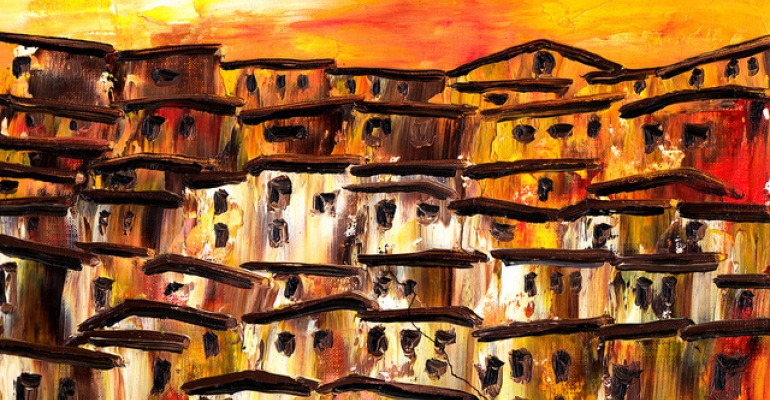
Reasons to Move to Cities: A Response
I understand why some people don’t love cities, and I agree that there is a huge need for people in smaller towns and villages to commit to building vibrant churches in those communities. Not all Christians should live in the city.
That said, I take issue with a couple of Andrew’s points from yesterday’s post. It is true (Point 3) that just as much art, literature and music is produced per capita in Hither Green (and Prestatyn and St Ives) as in central London, but the real issue is that the cultural norms and expectations are set in big cities in general and London in particular.
Take the drive towards euthanasia, for example. Spend a while in London, and you’ll believe that the vast majority of the population is crying out for it and desperate for the law to be changed post haste. Those who have the power to make and overturn laws are primarily concentrated (at least for their working lives, though they do indeed often retreat to the leafy suburbs for evenings and weekends) in this environment. If all the voices they are surrounded with are promoting this agenda, as opposed to the more balanced, less urgent views found in the majority of the nation, their decisions will be made based on unreliable/skewed evidence. It is vital that Christians engage with speaking into this cultural agenda and lending their voice to the debate.
Yes, Tom Wright is able to do that from St Andrews, but he has also spent a considerable amount of time in larger urban communities engaging with the ways in which culture is created and disseminated and, importantly, building a name for himself. Even while he was Bishop of Durham he had to spend a lot of time in London meeting with and speaking to the people he sought to influence. Books can be written anywhere and read anywhere, and video conferencing may eventually replace the need for anyone to actually gather together in large, air-conditioned venues to ‘see the whites of each other’s eyes’ and really engage with each other, but there is still huge value in going to where the influencers are, rather than hoping they will come to you.
Again, that’s not to say that Christians in Pitlochry, Whitehaven and Betws-y-Coed should feel free to sit on their hands and let the culture flow over them, they’re just going to have a tougher challenge getting their voices heard by the people who can make a difference. The Welsh revival teaches us, though, that while it’s tough, it’s certainly not impossible.
In Point 4, Andrew suggests that because cities in Bible times weren’t as big as cities now, it is therefore fallacious to suggest that cities are “vitally important to the biblical story”, yet in the introduction to the piece, he notes that some UK cities today have as few as 2,000 inhabitants. Taken as a proportion of the global population, Jerusalem, Athens, Antioch and Nineveh were huge, bustling conurbations and also, importantly, the centres of thought, discussion and cultural engagement. Size, actual or relative, is not the only significant factor in forming a place of influence. Yes, Jesus conducted most of his ministry in fishing villages and small towns, and I’m sure part of his reason for that was to remind the urbanophiles among us not to neglect the talent, power and need of those in the rest of the world, but it is no accident that the turning point of history occurs in the city. Andy Crouch puts it far better than I can:
Cities intensify everything about what it is to be a human being. Which may be why cities show up again and again in the biblical story, even though most people lived in rural areas at the time Scripture was written. You have Babel, which concentrates human rebellion like nothing before or since. You have Nineveh, the city that Jonah is sent to, that provokes God’s particular attention and compassion and redemptive intention. You have, of course, Jerusalem, where worship happens in a way that it doesn’t happen anywhere else in the biblical story. And then you have this amazing new City that’s promised as the culmination of God’s whole redemptive mission.
Towns, villages and suburbs are indeed vitally important, and we do need to be wary of idolising cities (I know that’s a tendency of my own heart), but neither must we make the opposite mistake of neglecting the importance of cities (either those which are big or those which, like the university cities are disproportionately influential).
Perhaps our American friends can help us here. The tiniest towns, which would barely count as villages here – like the one I lived in outside of Atlanta – are usually designated cities for certain purposes, so perhaps when we are called to seek the peace or flourishing of the city, we should take that to mean the community where God has placed us, whatever size or apparent cultural significance it may have. That way perhaps we will achieve the flourishing of the whole nation.